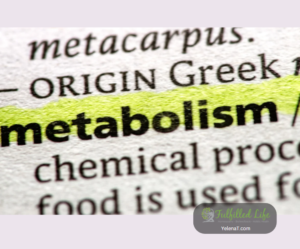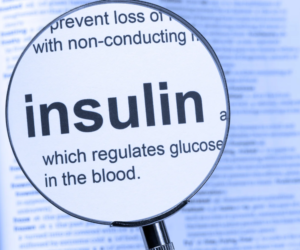Belly fat is a common concern for many of us, especially as we age. Hormonal changes, a slowed metabolism, and lifestyle factors can all contribute to weight gain around the midsection. However, with the right strategies, you can reduce belly fat and improve your overall health. This article provides practical tips and insights tailored for women over 40 who are looking to lose belly fat specifically.
Understanding the Root Cause of Belly Fat
Before diving into specific strategies, it’s crucial to understand that the approach to losing belly fat will differ based on the root cause. Identifying the underlying factors is essential for effective and sustainable weight loss.
- Hormonal Changes
During perimenopause and menopause, estrogen levels drop, which can lead to a redistribution of fat to the abdominal area. High levels of cortisol, the stress hormone, can also lead to increased abdominal fat. These hormonal changes make it particularly challenging for us to manage our weight. - Diet and Sedentary Lifestyle
Diets high in sugar, refined carbs, and unhealthy fats can contribute to weight gain around the belly. Additionally, a sedentary lifestyle can lead to overall weight gain, including in the abdominal area. - Gut Microbiome Imbalances
One common but often overlooked factor is gut microbiome imbalance. The gut microbiome plays a significant role in overall health, including weight management. An imbalance in gut bacteria can lead to a slow metabolism, making it difficult to lose weight. Testing your gut microbiome can provide insights into these imbalances and guide dietary and lifestyle changes to improve gut health and support weight loss.
Tips for Weight Loss
Here are some general tips for weight loss strategies that can be beneficial. However, it’s essential to know the root cause of your weight gain to create a custom strategy for long-lasting results.
- Effective Dietary Changes
A healthy diet is essential for losing belly fat and maintaining overall health. Focus on eating a balanced diet rich in fruits, vegetables, lean proteins, and whole grains. Cutting back on sugar and refined carbs can help reduce belly fat. Opt for whole grains and natural sugars instead. Incorporate healthy fats into your diet, such as those found in avocados, nuts, and olive oil. Include foods that promote a healthy gut microbiome, such as yogurt, kefir, sauerkraut, and high-fiber foods. Practice mindful eating and portion control to avoid overeating. - Exercise Strategies
Exercise is crucial for losing belly fat and improving overall health. One of the most important and highest priority exercises for losing belly fat and improving overall health is strength training. Strength training increases muscle mass, which boosts metabolism and helps your body burn more calories at rest. It also improves bone density, joint health, and overall strength. Include exercises like squats, deadlifts, bench presses, and rows. Use free weights, resistance bands, or body-weight exercises. Aim for at least two to three strength training sessions per week, focusing on different muscle groups each session.Cardio exercises like walking, jogging, swimming, or cycling complement strength training by improving cardiovascular health and aiding in calorie burn. Incorporate cardio workouts three to five times a week for 30-60 minutes per session. Always consult with your doctor before starting any new exercise regimen to ensure it is safe for your specific health conditions.
- Lifestyle Modifications
Making a few lifestyle changes can have a significant impact on belly fat and overall health.- High stress levels can lead to weight gain, particularly around the belly. Incorporate stress-reducing activities like yoga, meditation, and deep breathing exercises into your daily routine.
- Getting 7-9 hours of quality sleep per night is crucial for weight loss and overall health. Poor sleep can disrupt hormones and lead to weight gain.
- Staying hydrated supports weight loss efforts and overall health. Aim to drink at least eight glasses of water a day.
Investigate Underlying Factors
Sometimes, despite our best efforts with diet, exercise, and lifestyle changes, the weight doesn’t budge, or the belly fat stubbornly remains. In these cases, it’s essential to investigate underlying factors that may be contributing to weight gain.
This is where testing can be beneficial. By examining areas such as hormonal imbalances, gut microbiome health, inflammation, toxin burden, and food sensitivities, you can uncover hidden reasons why weight loss might be challenging.
- Hormonal Imbalances: Changes in hormones such as estrogen, cortisol, and insulin can all impact fat storage, especially around the abdomen.
- Gut Health: An imbalance in gut bacteria can slow down metabolism and contribute to weight gain.
- Chronic Inflammation: Persistent inflammation can lead to weight gain, fatigue, and metabolic changes that make weight loss difficult.
- Toxin Overload: Exposure to toxins can disrupt your endocrine system, impacting your body’s ability to shed weight.
- Food Sensitivities: Foods that your body struggles to tolerate can cause inflammation and contribute to weight gain.
Consistency and Patience
Losing belly fat is a gradual process that requires consistency and patience. Set realistic and achievable weight loss goals to stay motivated. Keep a journal or use apps to track your food intake, exercise, and progress. Celebrate small victories along the way. Remember, every woman’s body is different, and it’s important to find a routine that works best for you. Stay committed and patient, and you will see results.
If you are ready to take the next step towards losing belly fat and improving your health, whether you need to find the root cause, help with accountability, or put a strategy together, I invite you to schedule a complementary consultation with me. Together, we can develop a personalized plan tailored to your unique needs and goals.
Reach out now and let’s begin creating a life where you thrive with energy, balance, and fulfillment.








